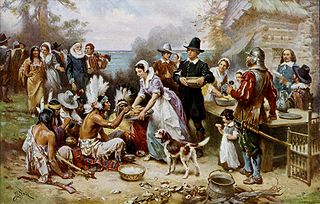Distorting History
Contents
Description of the pattern
Altering history by teaching manipulated stories, facts, and data is a means of promoting specific ideologies and agendas. This can be achieved by creating events that did not happen, altering events that did happen, or omitting events altogether. Over time knowledge of the truth will die with those who lived or witnessed it, and the alternate version will be universally accepted as true.
Why the pattern is good (i.e. bad)
Distorting history is an effective method of erasing events from the minds of the population, of glorifying events and people in support of state ideals, and vilifying events and people in conflict with state ideals.
How it Works
Presenting history in a way that supports the agenda of the state, and reinforcing it through public education and the media can be used to control the perceptions of the populace in ways that prevent dissent and promote nationalism.
Evidence
"More than we would like, our texts are based on warmed-over tales of the nineteenth century such as Patrick Henry’s “Liberty or Death” speech (written by William Wirt in 1817, forty-two years after the fact) and Paul Revere’s Ride (popularized in 1861 by Henry Wadsworth Longfellow, who distorted every detail of the event to make his story better). Although many historians know better, these stories work so well that they must still be included, regardless of authenticity or merit."
"The Valley Forge story, developed during the prelude to the war of 1812, effectively conceals the harder times soldiers had to face two years later at Morristown — the coldest winter in 400 years — and the mutinies that ensued. That story receives no mention at all in twenty-one of the twenty-two texts."
both of the above from http://hnn.us/articles/7219.html
"If you went back and looked at the front pages of newspapers in 1969, 1970, you know, what you were going to see on the front pages of newspapers was about Vietnam vets. They're in the streets. They're political activists. Ah, they're on the Capitol Mall, and giving the Nixon Administration fits. This was stuff that, that was in living rooms all over America . So people knew this, and this is an important piece for talking about, how memory about the war has been rewritten, has been reconstructed. This is gone. This has been erased. This has been displaced. You mention the war in Vietnam to a lot of people, and, and they'll say, "Yeah, and what happened to those guys when they came home was sure a shame." Ah, you ask them about uhm, any of the major events of the war, and it's like people, people have no clue."
from the film Sir! No Sir!
Links (to other anti-patterns)
Semantic Manipulation, Denialism, Cultural imperialism, Ultra-nationalism, Dumbing Down, Xenophobia

